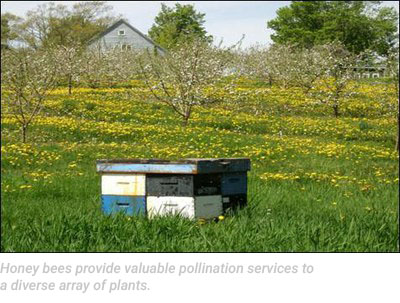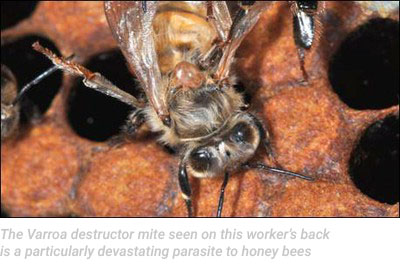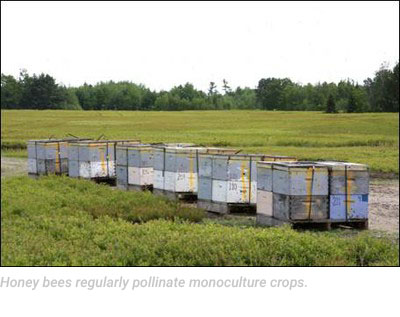In recent years many beekeepers in the northern hemisphere annually witness a high number of their honey bee colonies dying. These deaths threaten global food security as the honey bee, as well as numerous other insect species, provides an important pollination service to agriculture.
Through our colony losses monitoring programme and BEEBOOK, we collect data on these deaths in order to provide appropriate information and advice to stakeholders, including government policy-makers. Currently there are large gaps in knowledge concerning why colonies are dying at such an alarming level.

Introduced pests and parasites are seen as particularly devastating. The mite Varroa destructor, for example, is arguably the single most important. Not only does the parasite feed on honey bee blood, but it also debilitates the immune system and vectors a number of viruses that can cause further harm. Although various strategies such as chemotherapy or resistance/tolerance breeding exist for eliminating varroa’s impact, none so far have been sustainable.

Environmental changes from land-use can also influence honey bee health. Nutrition plays an important role towards disease resistance, yet the diversity of floral food sources for honey bees has been declining in agricultural landscapes. Additionally, the influence of agro-chemicals and pollution on honey bees has been demonstrated in individual honey bees, yet how they affect the colony remains poorly understood.

Furthermore, management of honey bee colonies can greatly influence the process of natural adaption to the environment. Past breeding efforts have focused on honey production and temperament; however, new schemes are urgently needed to breed disease-resistant stock and to conserve locally adapted honey bee populations for the future.
Because of the myriad of factors that influence honey bee health internationally, the most effective means to improve the well-being of bees is to adopt an international, coordinated approach – COLOSS.









